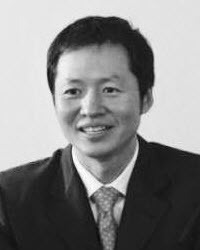[Management in Korea] Why all shareholders matter (2)
How investors can spur better corporate governance
By Korea HeraldPublished : April 2, 2020 - 14:31
Management in Korea is a regular column written by the members of Egon Zehnder Seoul, touching on various aspects of Korean enterprises and business leaders and offering management tips. -- Ed.
By Eugene Kim and Olivia de Patoul
In the first article published in March, we discussed how governance in South Korea has become marginalized, the factors that played into creating an environment where shareholders are often ignored, and how preventive steps investors can take to ensure board members uphold their fiduciary duties. This artcle focuses on legislative actions shareholders can take if they believe their rights were violated.
Navigating the court system
Litigation is often the last remedy for investors when all other measures have failed. They may, for instance, request the company to file (or file themselves on behalf of the company) a lawsuit against directors who negligently performed their duties. This is the so-called derivative action.
By Eugene Kim and Olivia de Patoul
In the first article published in March, we discussed how governance in South Korea has become marginalized, the factors that played into creating an environment where shareholders are often ignored, and how preventive steps investors can take to ensure board members uphold their fiduciary duties. This artcle focuses on legislative actions shareholders can take if they believe their rights were violated.
Navigating the court system
Litigation is often the last remedy for investors when all other measures have failed. They may, for instance, request the company to file (or file themselves on behalf of the company) a lawsuit against directors who negligently performed their duties. This is the so-called derivative action.

Aside from that, Korean lawmakers set up a legal regime giving the opportunity to investors to claim directly, in their own name, damages from the company, the management, or in some cases the auditors for losses they may have suffered following a corporate misconduct situation. This can be done by either filing individual litigation or by filing a class action, provided certain prerequisites are met.
These options given to investors are not only theory --several cases are pending in Korean courts, filed by local investors claiming damages. Some cases have already been successful. The next step is to have foreign investors on board as well.
Similar to South Korea, other countries in Asia have also designed sophisticated legislation enhancing the rights of investors, also covering shareholders’ lawsuits.
Let’s take the example of the much-discussed Olympus case in Japan, one of largest frauds ever in Asia. While initially denied by the board of directors despite substantiated allegations put forward by the recently appointed CEO, Olympus disclosed in November 2011 that it was involved in a fraudulent scheme since 1998 aimed at removing toxic assets from its balance sheet under the cover of legitimate acquisitions. Following these revelations, the stock price lost approximately 80 percent.
Independent committees concluded that senior management, including the new chair of the board, was fully aware of the fraudulent practices since their early implementation. It was further held that the general weakness of good governance inside the company contributed to the fraud.
What was the reaction of institutional investors to that scandal? They sued. Why? Because they thought it was their fiduciary duty toward their own constituents to seek damages following such an egregious, undisputed fraud, and that such behavior could not be left without consequences if investors are striving for healthier financial markets.

After a hard-fought litigation, a group of 60 institutional investors advised by Deminor reached a settlement, where they recovered up to 45 percent of their losses. By having participated in this litigation, investors made it clear that they do not tolerate fraud. Furthermore, the outcome of these sorts of litigations is acting as a deterrent to unethical behaviors.
Future of governance in Korea
Corporate governance reform is not a new topic in Korea. Every time a new president is elected, he or she promises to ferret out corruption and improve corporate governance -- especially in major Korean companies. Unfortunately, the people of Korea are still waiting for that to happen. One of the necessities needed to improve governance is better shareholder engagement. Investors, of course, do want good returns, but long-term investors are also looking for transparency in decision-making processes of the company and an opportunity to speak with the board as necessary.
Koreans want to live in a country where hard work, inspiration, and success are rewarded fairly. For companies to make those changes, the voices of shareholders must rise up and push relentlessly for boards with independent directors, additional disclosures about company performance, priorities, and strategy, and a stronger focus on shareholders over owners.
Eugene Kim is the managing partner of advisory firm Egon Zehnder Seoul. He can be reached at Eugene.Kim@egonzehnder.com. Olivia de Patoul joined Deminor Recovery Services in 2018 and is in charge of the Asia-Pacific region based in Hong Kong. Deminor Recovery Services defends the interests of investors since 1990, with offices in Hong Kong, New York, London, Brussels, Milan and Luxembourg. She can be reached at olivia.depatoul@deminor.com.--Ed.
-
Articles by Korea Herald







![[Graphic News] More Koreans say they plan long-distance trips this year](http://res.heraldm.com/phpwas/restmb_idxmake.php?idx=644&simg=/content/image/2024/04/17/20240417050828_0.gif&u=)
![[KH Explains] Hyundai's full hybrid edge to pay off amid slow transition to pure EVs](http://res.heraldm.com/phpwas/restmb_idxmake.php?idx=644&simg=/content/image/2024/04/18/20240418050645_0.jpg&u=20240419100350)






![[From the Scene] Monks, Buddhists hail return of remains of Buddhas](http://res.heraldm.com/phpwas/restmb_idxmake.php?idx=652&simg=/content/image/2024/04/19/20240419050617_0.jpg&u=20240419175937)

![[KH Explains] Hyundai's full hybrid edge to pay off amid slow transition to pure EVs](http://res.heraldm.com/phpwas/restmb_idxmake.php?idx=652&simg=/content/image/2024/04/18/20240418050645_0.jpg&u=20240419100350)

![[Today’s K-pop] Illit drops debut single remix](http://res.heraldm.com/phpwas/restmb_idxmake.php?idx=642&simg=/content/image/2024/04/19/20240419050612_0.jpg&u=)